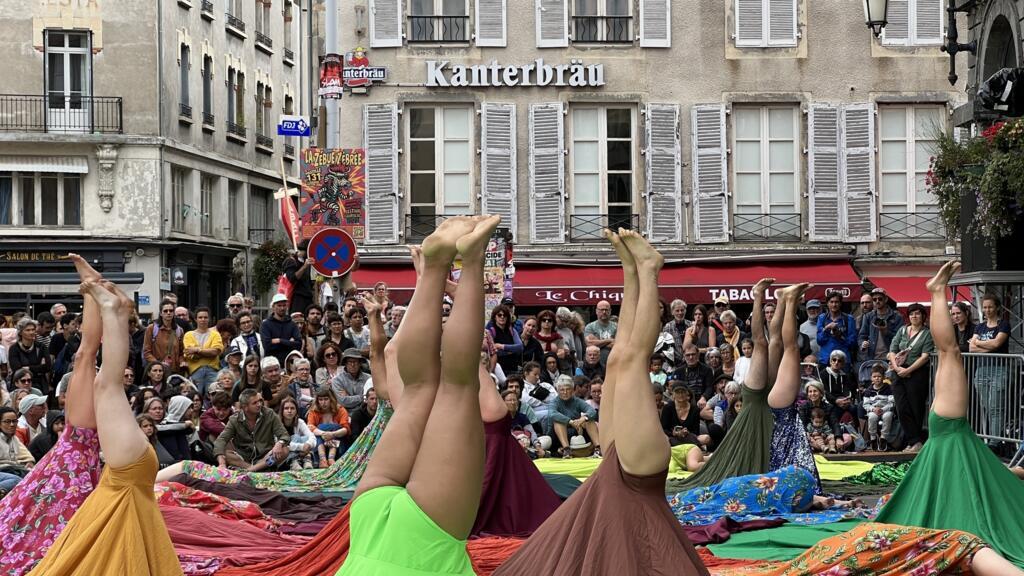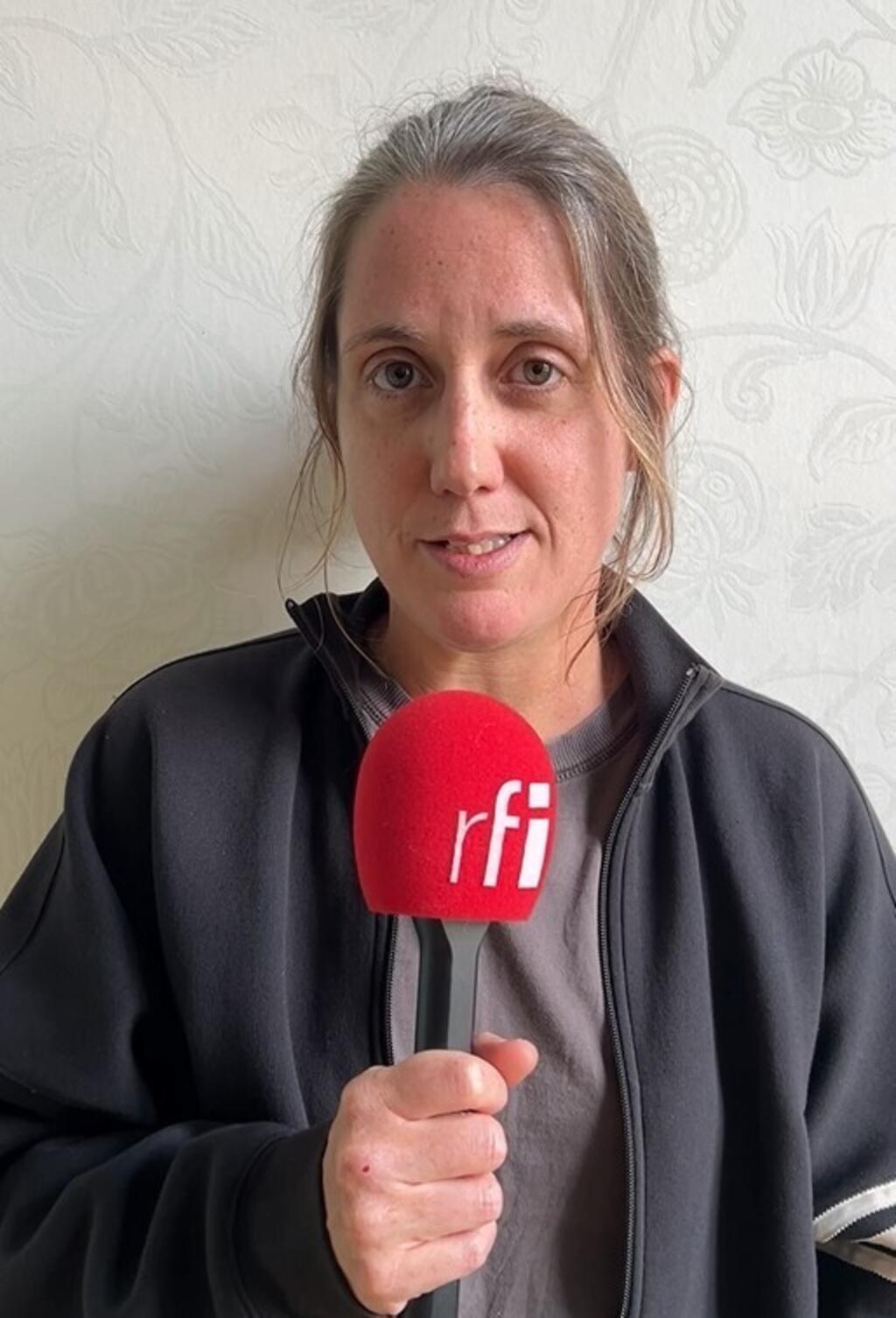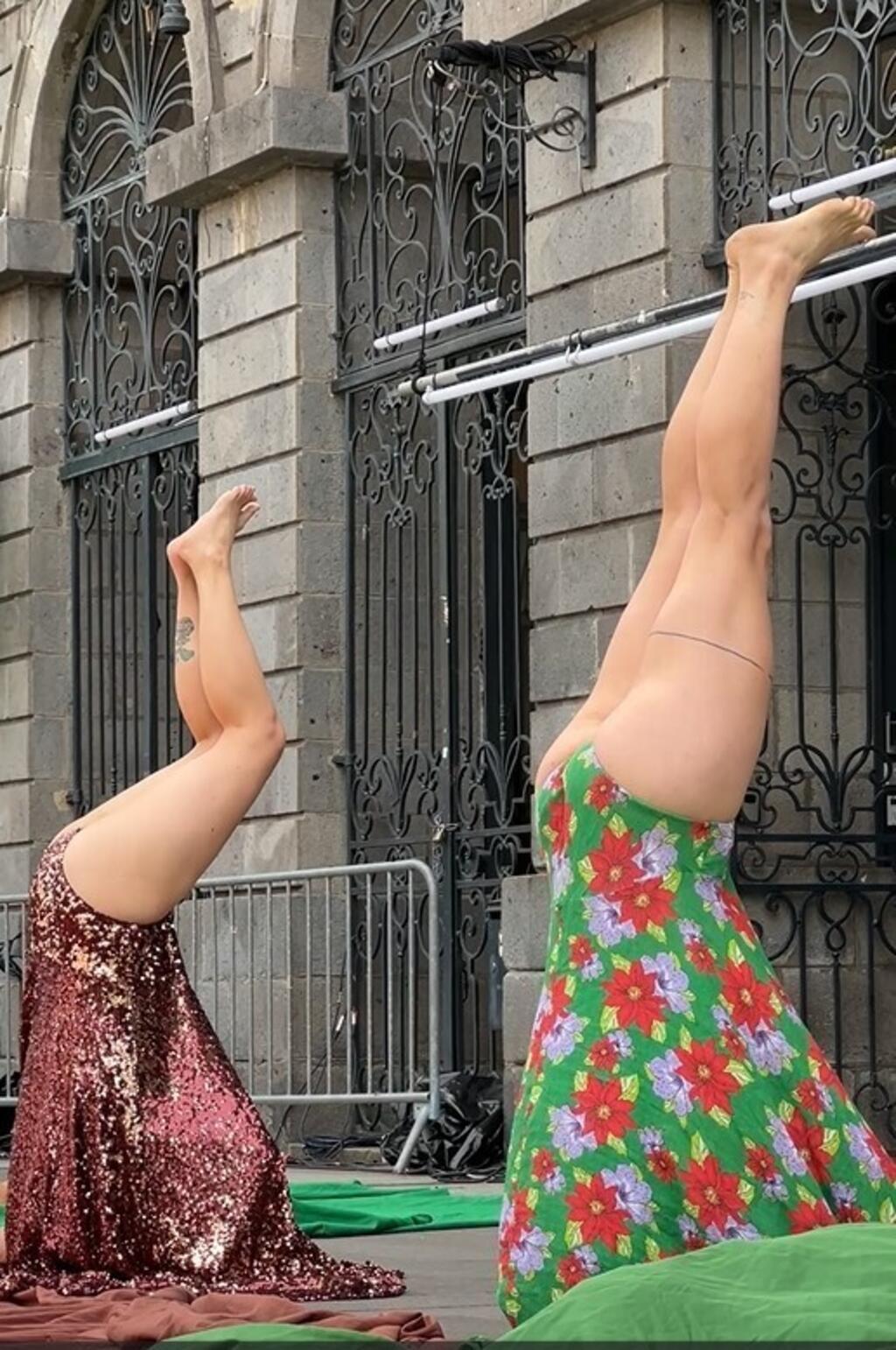
A month of creative encounters with Brazil kicks off this weekend at the Lyon Dance Biennale. Choreographer Clarice Lima from Sao Paolo is among the artists and companies joining the programme this year with her work "Bosque", which uses street theatre to rebuild the broken links between humans and nature.
As France celebrates France Brazil 2025, a year-long cultural collaboration, this year's Lyon Dance Biennale features eight dance companies from the South American nation.
Trained as a dancer in Amsterdam, Lima runs her own dance company in Sao Paolo, Futura.
Speaking to RFI at the Aurillac International Street Theatre Festival in August, she said she was excited to be sharing her work Bosque ("Woods") – a meditative "human forest" – with audiences in France.
"I have been developing this project for several years. Bosque evokes this shifting landscape, a landscape that we create in the city with the city’s inhabitants and which, like nature, is alive."
The work, she says, is an invitation to slow down and take a moment to remember that man and nature are one and the same. "That is why it is important to take care of ourselves, of the place where we live."

Reimagining cityscapes
For Lima, collaboration – including interaction with the public – is at the heart of all her projects.
"I really like to think of artistic creation as a way to bring people together. I think it's important to clarify that my artistic practice is total, not linear. It's circular – it goes to the street, it goes to childhood, it goes to the theatre," she explains.
Lima is drawn to the contrasts inherent in cities, to the layers of concrete and the possibility of occupying the space differently.
"I would like people to imagine 'Wow! What if there were trees in this space? What if this space was occupied by something else?' This is where imagination is a key factor."
Turning the world on its head
She set about designing an "upside down" forest – made of people wearing long skirts and standing on their heads so the skirts fall down and fan around them, covering their heads and arms but revealing their bare legs, like trunks.
From ornitherapy to kissing trees, how can nature benefit human health?
"For me, it's the image of an inverted tree. I've always been fascinated by this image of the inverted body, because it makes me wonder if it's the inverted body or the world upside down. I think it challenges normality, our perception of the body, and opens us up to other perceptions. It also evokes the theme of physical resistance, the one we must have."
Lima and her team of four have used colour and texture in the costumes to mimic the forests and woods, using various shades of green, brown, orange and purple.
"We also wanted to incorporate flowers using chintz, a very Brazilian and popular fabric. It highlights the flowers of the forest and the sequins we use [because they are] a fabric widely used during Brazilian carnival," she says.
The forest is then "landscaped" using non-professional volunteers from the local population – who have good balance and know how to do a handstand.
"There are people from yoga, circus, capoeira, hip hop who – thanks to their very particular way of standing on their heads – bring us closer to different worlds," she says. "I think that dance and art are about bringing worlds together and creating alliances with others."

From Dakar to Paris, stories of struggle and joy told by modern African dance
The power of imagination
Lima believes the Lyon Biennale will be a great boost to Bosque, which has involved some 200 performers since it was created.
"This project was produced by the Big Pulse Dance Alliance, an alliance of European festivals, and after this co-production, we will gradually be able to tour more in Europe," she says.
One factor is key to the performance, and to her work as a whole is letting the imagination run free.
"I think art can manifest in many ways, but I deeply believe in imagination, the potential it holds, and our ability to imagine and create other worlds... Rather than thinking about what we have, let's imagine what we can be."
The Lyon Dance Biennale runs from 6 to 28 September in Lyon, and until 17 October in the wider Auvergne-Rhône-Alpes region.







